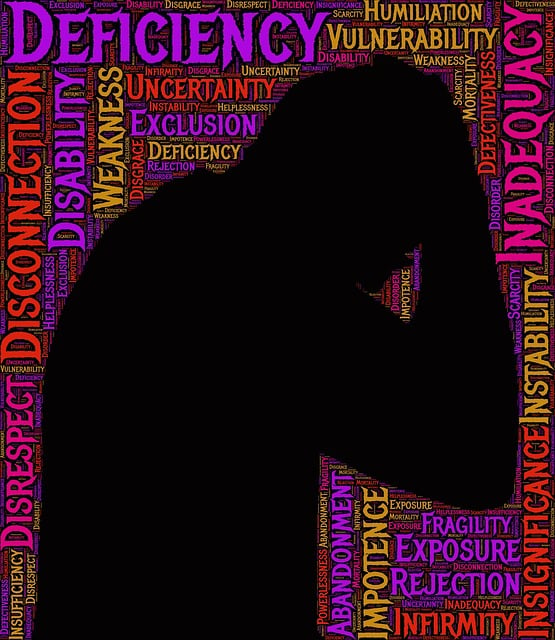Risk assessment is crucial for developing robust harm minimization strategies in healthcare, especially within Arvada Spanish Speaking Therapy services. By identifying physical and psychological risks, therapists can create safer environments and improve care quality. Cultural considerations are key, with strategies addressing stigma, community outreach, and conflict resolution to enhance inclusivity for the local Latinx population. A comprehensive risk management plan, incorporating emergency procedures, confidentiality, and ethical guidelines, ensures therapist-client interactions adhere to standards. This dynamic approach involves tailored risk evaluations, empathy building, and continuous training to foster open communication, client engagement, and positive outcomes for diverse communities seeking Arvada Spanish Speaking Therapy.
Risk assessment and harm minimization planning are essential components of any comprehensive therapy program, particularly in diverse settings like Arvada Spanish Speaking Therapy. This article delves into the critical process of identifying potential hazards and outlines proactive harm minimization strategies. We explore cultural considerations specific to Spanish-speaking communities, providing a practical guide for developing robust risk management plans. Through implementation and continuous improvement, these strategies ensure effective risk mitigation, fostering safer and more inclusive therapeutic environments.
- Understanding Risk Assessment: Identifying Potential Hazards
- Harm Minimization Strategies: A Proactive Approach
- Cultural Considerations in Therapy: The Arvada Spanish Speaking Therapy Perspective
- Developing a Comprehensive Risk Management Plan
- Implementation and Continuous Improvement for Effective Risk Mitigation
Understanding Risk Assessment: Identifying Potential Hazards

Risk assessment is a crucial step in developing effective harm minimization plans, especially in sectors like healthcare and therapy services. For Arvada Spanish Speaking Therapy professionals, understanding this process involves identifying potential hazards within their practice settings. These could range from physical risks in the clinic to emotional or psychological dangers for both patients and therapists. By thoroughly assessing these risks, practitioners can ensure a safer environment and deliver quality care.
For instance, in the context of public awareness campaigns development, recognizing potential hazards might involve considering the impact of misinformation on patient well-being. Similarly, burnout prevention strategies for healthcare providers can be enhanced by regular risk assessments, ensuring therapists take necessary precautions to avoid professional exhaustion. Even promoting mindfulness meditation as a stress management tool can be seen through this lens, as it helps therapists maintain focus and emotional balance during challenging interactions with patients.
Harm Minimization Strategies: A Proactive Approach

Harm Minimization Strategies represent a proactive approach to risk assessment and management, particularly in diverse communities like Arvada Spanish Speaking Therapy regions. By focusing on prevention and early intervention, these strategies aim to reduce potential harm before it occurs. This involves a range of methods tailored to address specific risks and challenges faced by individuals and communities. For instance, mental health awareness campaigns can help destigmatize mental illness, encouraging those in need to seek support without fear of judgment.
In implementing such strategies, Trauma Support Services play a vital role in building resilience and fostering safe spaces. By educating communities about risk factors and providing accessible resources, these services empower individuals to take charge of their well-being. Mental Illness Stigma Reduction Efforts further contribute to creating an inclusive environment where everyone feels supported and understood. This proactive approach not only minimizes harm but also promotes overall mental health and community cohesion.
Cultural Considerations in Therapy: The Arvada Spanish Speaking Therapy Perspective

In the context of Arvada Spanish Speaking Therapy, cultural considerations are paramount to ensuring effective and respectful mental healthcare services for the local Latinx community. This diverse population brings a range of unique cultural beliefs, values, and communication styles that therapists must be sensitive to. For example, within the Latinx culture, family and community support systems play a central role in an individual’s well-being, often influencing their willingness to seek therapy. Therapists practicing in Arvada should incorporate these familial dynamics into their practice, fostering an environment where clients feel comfortable discussing issues with the support of their loved ones.
Community Outreach Program Implementation and Conflict Resolution Techniques are valuable tools for enhancing cultural sensitivity in mental healthcare practice. By actively engaging with the Latinx community, therapists can better understand local needs, break down barriers to care, and develop culturally tailored interventions. Moreover, integrating Conflict Resolution Techniques that acknowledge and respect cultural differences can facilitate therapeutic alliances, leading to more successful outcomes for clients from diverse backgrounds, including those who speak Spanish as their primary language.
Developing a Comprehensive Risk Management Plan

Developing a comprehensive risk management plan is an integral part of providing effective and safe services, especially in fields like Arvada Spanish Speaking Therapy where cultural sensitivity and linguistic skills are paramount. This process involves identifying potential risks and harms associated with therapy sessions, client interactions, and the therapeutic environment. By taking a proactive approach, mental health professionals can ensure the well-being of both clients and themselves.
A robust plan should incorporate strategies for risk assessment, mitigation, and monitoring. It includes procedures for handling emergencies, managing client confidentiality, and addressing ethical dilemmas. Additionally, self-awareness exercises and ongoing professional development can enhance therapists’ ability to recognize and manage their own potential vulnerabilities, thereby improving the overall quality of care. For instance, incorporating Self-Esteem Improvement techniques into therapy sessions can benefit both therapist and client, fostering an environment where trust and openness thrive. Moreover, Risk Management Planning for Mental Health Professionals is essential in navigating complex situations, ensuring that every interaction adheres to ethical standards and promotes positive outcomes.
Implementation and Continuous Improvement for Effective Risk Mitigation

Implementing effective risk assessment and harm minimization strategies requires a dynamic approach, especially when tailored for diverse populations like those seeking Arvada Spanish Speaking Therapy. The initial step involves comprehensive risk evaluation, considering various factors unique to each client’s background and experiences. By employing Empathy Building Strategies, therapists can foster open communication, encouraging clients to disclose potential risks or challenges they may face during therapy. This collaborative process is crucial in identifying areas of concern, be it related to mental wellness, social skills development, or cultural considerations.
Continuous improvement is integral to successful risk mitigation. Regularly reviewing and updating risk assessment protocols ensures that the therapy approach remains relevant and effective. Through ongoing training and supervision, therapists can enhance their Empathy Building Strategies, thereby improving client engagement and satisfaction. This iterative process not only benefits individual clients but also contributes to the overall advancement of Arvada Spanish Speaking Therapy practices, aiming to provide a safer and more inclusive environment for all participants.
Risk assessment and harm minimization planning are essential components of any comprehensive therapy program, especially considering the diverse cultural needs of clients. The article has explored various aspects, from identifying potential hazards to implementing effective strategies for risk management. In the context of Arvada Spanish Speaking Therapy, understanding cultural nuances is critical. By developing a robust risk management plan and continuously improving practices, therapists can ensure a safe and supportive environment, fostering positive outcomes for all individuals served.












